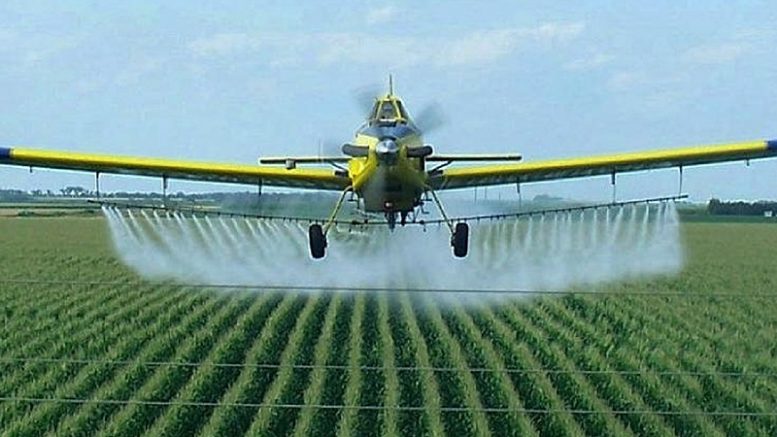“If these deadlines are met, in the coming months there will be a large number of approved registrations, potentially reaching more than 4,400.”
Flavio Hirata is a partner at the agribusiness consultancy AllierBrasil, an agronomist graduated at Esalq/USP and an expert in pesticide registration.
AllierBrasil is a pesticide registration consultancy, which organizes technical-commercial visits, exhibitions and lectures on agribusiness and registration in India, China and Brazil with the aim of promoting Brazilian agriculture.

Flavio Hirata, partner AllierBrasil flavio.hirata@uol.com.br
President Lula sanctioned Law No. 14785 of December 27th, 2023, which provides, among other topics, the registration, control, inspection, and supervision of pesticides, repealing Law No. 7802, of July 11th, 1989, and Law No. 9974, of June 6th, 2000, and parts of annexes to Laws No. 6938, of August 31st, 1981, and No. 9782, of January 26th, 1999. The sanctioned Law had 14 sections vetoed by the Government.
The new Law establishes new deadlines for completing registration requests, which are now:
– new product (formulated), new product (technical): 24 months;
– formulated product, generic product, equivalent technical product, atypical product, pre-mixture: 12 months;
– identically formulated product: 60 days;
– product for organic agriculture, product based on biological control agent: 12 months.
If these deadlines are met, in the coming months there will be a large number of approved registrations, potentially reaching more than 4,400. On one hand, it is highly positive as it increases competition, but on the other hand, it is worrying as it could cause a strong and fast drop in product prices, causing major losses for stockholders in the country. In addition, if the deadlines are not met, there will most likely be a record number of legal actions to enforce the established deadlines, following the trend of recent years.
Risk analysis is also foreseen for the granting of registrations for new products, as well as for changes in uses that imply an increase in dose, crop inclusion, application equipment, or in cases of reanalysis.
“there will not be market for so many products and there will be a significant number of registration cancellations.”
Contrary to the regulations in force until now, it will be mandatory to present agronomic feasibility studies for formulated products and formulated products based on equivalent technical products in cases where there is no registration of a product with the same type of formulation and the same indications for use (crops and dose) and types of usage already registered. It will increase registration costs significantly.
It is established that the federal body responsible for agriculture, among other duties, should “define and establish priorities for the analysis of applications for pesticide registration for the federal bodies responsible for the health and environmental sectors”. It is up to the federal bodies responsible for the health and environmental sectors to prioritize the analysis of requests for registration of pesticides and environmental control products as established by the registering body.
The registration of pesticides,…, which present an unacceptable risk to humans or the environment, as they remain unsafe, is prohibited, even with the implementation of risk management measures, following the parameters of the GHS, the Agreement on the Application of Sanitary and Phytosanitary Measures (SPS) and the Codex Alimentarius.
In the new Law, the Export Registration is replaced by a production notification to the registering body for the export of the product, the quantities to be exported, and the destination. It also allows the registering body to approve the import and grant temporary emergency permission for the production, distribution, marketing, and use of pesticides,…, in cases of a state of phytosanitary emergency due to an epidemiological situation that indicates an imminent risk of the introduction of an exotic disease or quarantine pest absent in the country, or risk of an outbreak or epidemic of an existing disease or pest, exempting product registration.
It is important to highlight Article 35, which deals with the non-commercialization of a product within 2 years after registration has been granted. “Once the registration for the pesticide is issued,…, the registration holder will have up to 2 (two) years to start production and commercialization of the product, under penalty of cancellation of the granted registration”. Taking into account the 3,300 formulated products already registered, added to the more than 4,400 processes in the queue for evaluation (all types of products), there will not be market for so many products and there will be a significant number of registration cancellations. If a registration of an equivalent technical product and its respective formulation required up to 12 years for approval, according to the new Law, 2 years will be enough for its cancellation (if there is no commercialization).
Regarding the collection of used product packaging, the importer will be responsible when the product is not manufactured in the country. Companies that produce and sell pesticides,…, are responsible for the disposal of empty packaging and any post-consumer waste of the products they manufacture and sell, aiming for their reuse, recycling, or destruction after return by users and inspection action.
Another relevant change refers to fines, which can vary from US$ 410 to US$ 410,000, proportional to the severity of the infraction.
The full implementation of the Law still depends on its regulation, whose decree discussions are already underway.
The New Pesticide Law is subject of the 21st Forum AllierBrasil (Sao Paulo, New Delhi, Nanjing), organized by AllierBrasil.
READ MORE:

